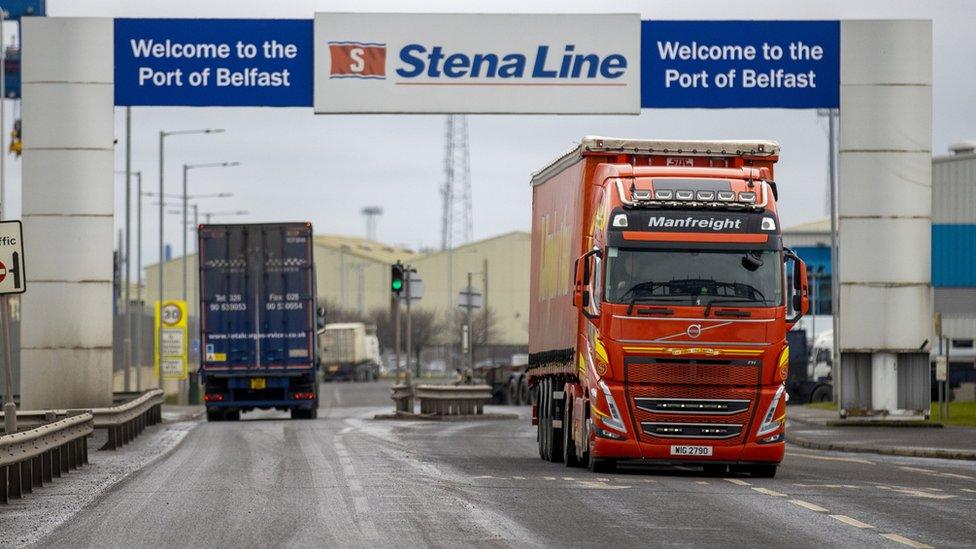Is the Windsor Framework now a Windsor knot?
- Published
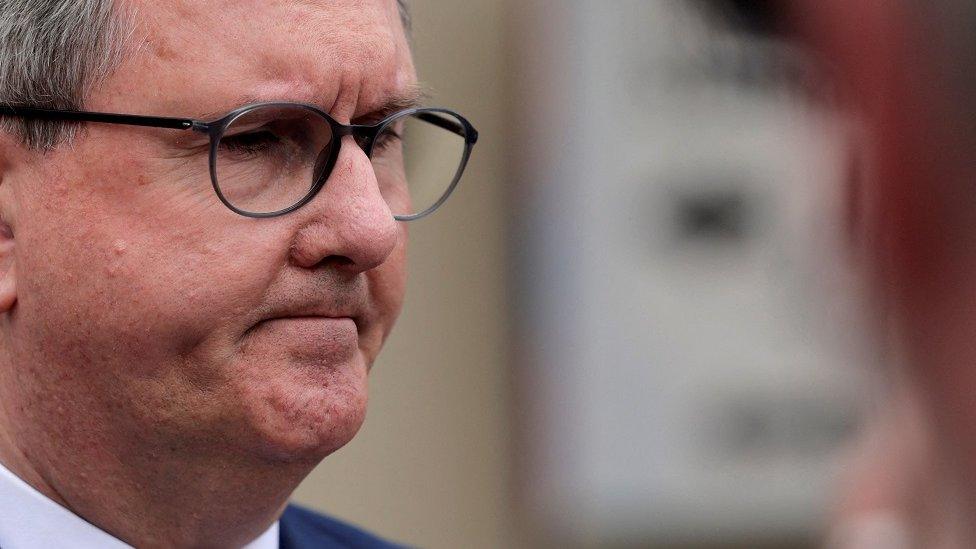
It is the big summer dilemma which continues to divide cinema goers.
Getting immersed in fantasy with a guaranteed happy-ever-after ending or toiling through a long, drawn-out grind full of political intrigue.
Decisions, decisions.
You could say Prime Minister Rishi Sunak has taken the first option and gone to his happy place.
He is currently in California where he first met his wife and where he is treating his daughters to the delights of Disneyland.
Democratic Unionist Party (DUP) leader Sir Jeffrey Donaldson has opted for the political grind, giving up his summer holidays in the hope of avoiding the nuclear option for Stormont.
Old wounds
Already the intrigue is starting to build as the DUP leader this week faced down his critics who he accused of trying to damage the party.
It was just one line in an email to members about wider unionist unity but a line which shone a light on old wounds clearly not yet healed.
Sir Jeffrey was not available to be questioned about the email; it was, for him, an internal party matter.
But that left the space free for those same critics he called out to give their take on the leader's swipe.


Opinions ranged from Sir Jeffrey is feeling the heat, getting frustrated and now biting back, to questions about his judgement, putting the focus back on party in-fighting and away from the government talks on the protocol.
But there was no sense of any push against the leader.
'Not into window dressing'
Maybe, said one Sir Jeffrey critic, too much is being made of the email at a time when there is little else on the political front to report.
But the timing cannot be ignored.
The email landed with members after a week in which the party leadership pored over and debated the government's response to the DUP's protocol demands.
It was signed off before the prime minister left for California, but it offered very little new, according to one senior DUP source.
"We are not into window dressing or comfort words, we need to see real meaningful change to restore Northern Ireland's place in the UK," they said.
Now the DUP is working on its response, but the gap is so wide there is little or no expectation of a breakthrough.
So the conversations may be getting harder within the DUP about what the party could live with in return for ending its Stormont boycott.
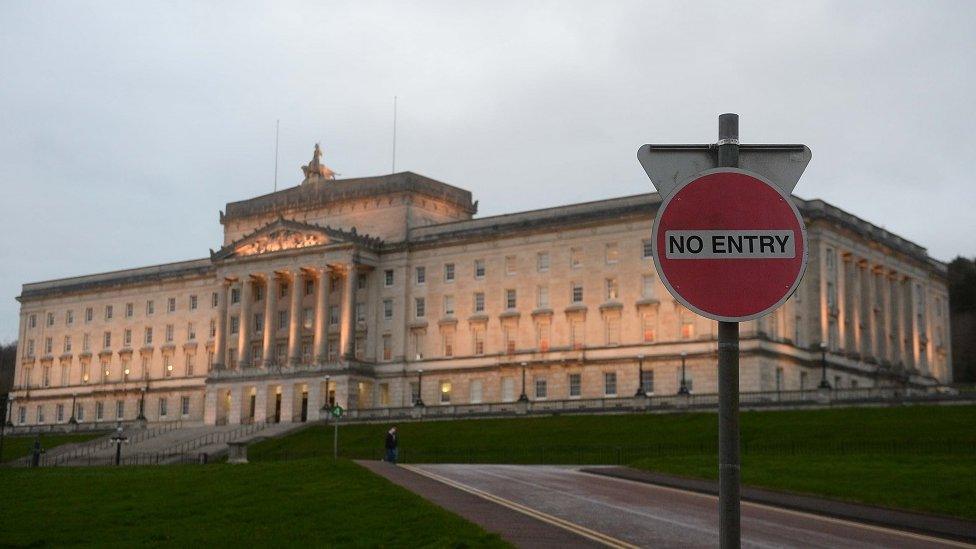
Stormont has been without a functioning executive since February 2022
The language is also starting to harden.
Lords Dodds' damning verdict of the Windsor Framework is telling.
He praised a Lords' report last week for cutting though "the propaganda and spin" in exposing "the real truth" of the Windsor Framework.
Crucially, he concluded the Windsor Framework "utterly failed" the DUP's seven tests.
The same framework which the DUP leadership had previously concluded had made "significant progress" but needed "re-worked and changed".
For that reason the party voted against it in parliament.
Sir Jeffrey later set out five problem areas which he said needed to be resolved before his party would consider a return to Stormont.
At the time it felt like the DUP had moved beyond its seven tests.
Now Lord Dodds, with the approval of the party leadership, has put those tests firmly back in play.
For him, the Windsor Framework cements the Irish Sea border which fails a key DUP test and is therefore a deal breaker.
But for London and Brussels the deal is done and the Irish Sea border with its red and green lanes is here to stay.
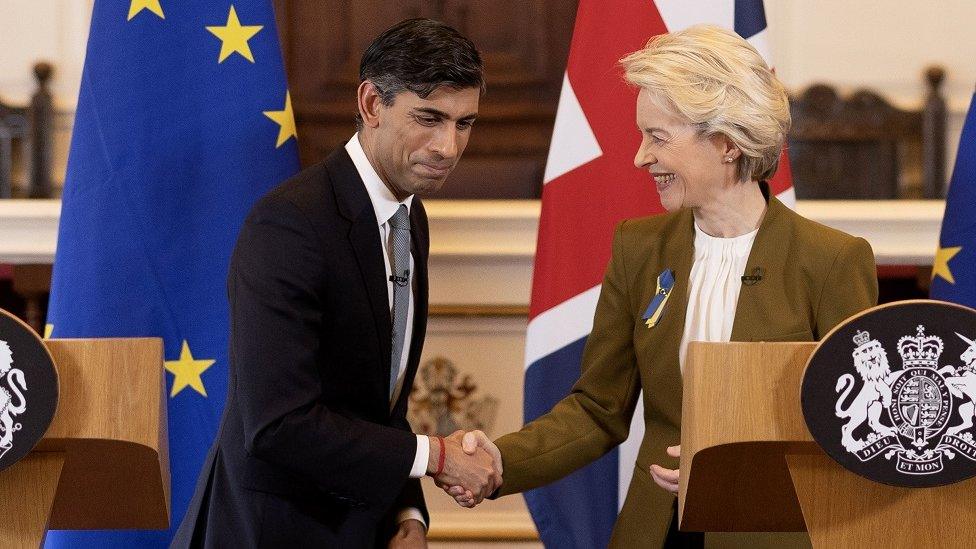
The Windsor Framework was announced by Rishi Sunak and the President of the European Commission Ursula von der Leyen in February
Though Rishi Sunak insisted the "sense" of an Irish Sea border is gone in reality it is still there.
Minimal spot checks and paperwork will still be required for goods destined to stay in Northern Ireland using the green lane.
The text is clear: "Authorities will carry out proportionate risk-based and intelligence-led checks to ensure that these requirements are in place."
Nowhere else will such checks be required for goods moving within the UK.
'No appetite for compromise'
But if removing the Irish Sea border is now the acid test for the DUP then do not expect to see Stormont restored any time soon.
Setting the bar high could be a negotiating tactic as the party continues talks with the government.
Whatever the strategy, the room for manoeuvre in the negotiations is diminishing fast.
So, too, is the time to a reach a deal.
"There is a window between now and November but after that the Westminster election next year will be the focus and there will be no appetite for any compromise," predicted one DUP source.
But that window is complicated as key parts of the Windsor Framework including the green and red lanes come into operation in October.
Maybe not a good time for DUP hands to be on the levers of power at Stormont.
Mission Impossible?
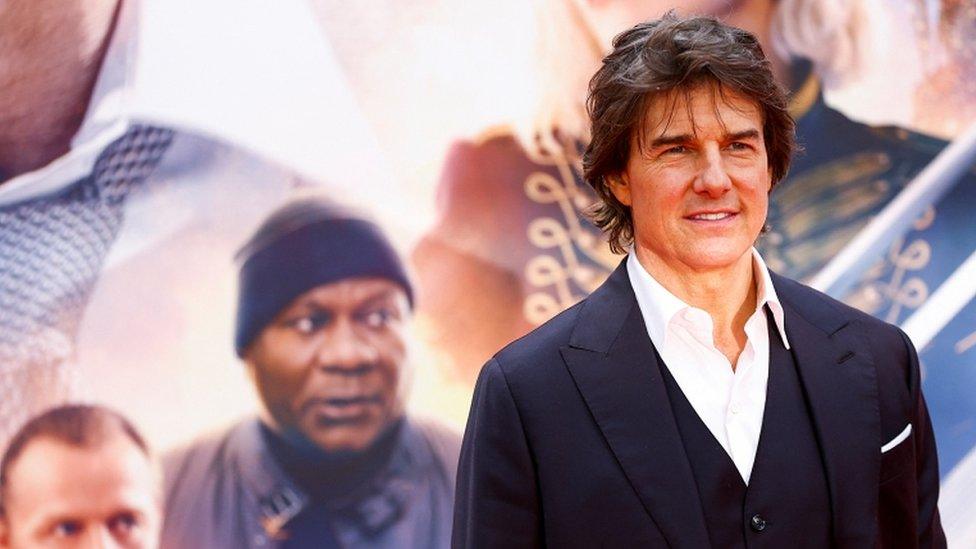
Does Sir Jeffrey face a Mission Impossible task?
The party may argue it is better to fight the framework from within rather than from the margins.
Five months after it was signed the Windsor Framework now feels more like a Windsor knot.
A knot which the DUP is desperate to unravel while London and Brussels are determined to tighten in a bid to improve relations.
There is also a knot starting to tighten within the DUP with some MLAs and some MPs pulling in very different directions.
Unravelling that bind to plot a path back to Stormont is going to be a big challenge for the DUP leader.
Another summer blockbuster springs to mind: Mission Impossible.
The easiest option might be to play the long game in the hope a Labour-led government, if elected, might set a new post-Brexit course.
In the meantime, Rishi Sunak returns from his happy place next week to an in-tray full of problems.
If we expect the Stormont stalemate to be near the top then we are, to borrow a phrase from Northern Ireland Secretary Chris Heaton-Harris, this week "living on a prayer".
- Published2 August 2023
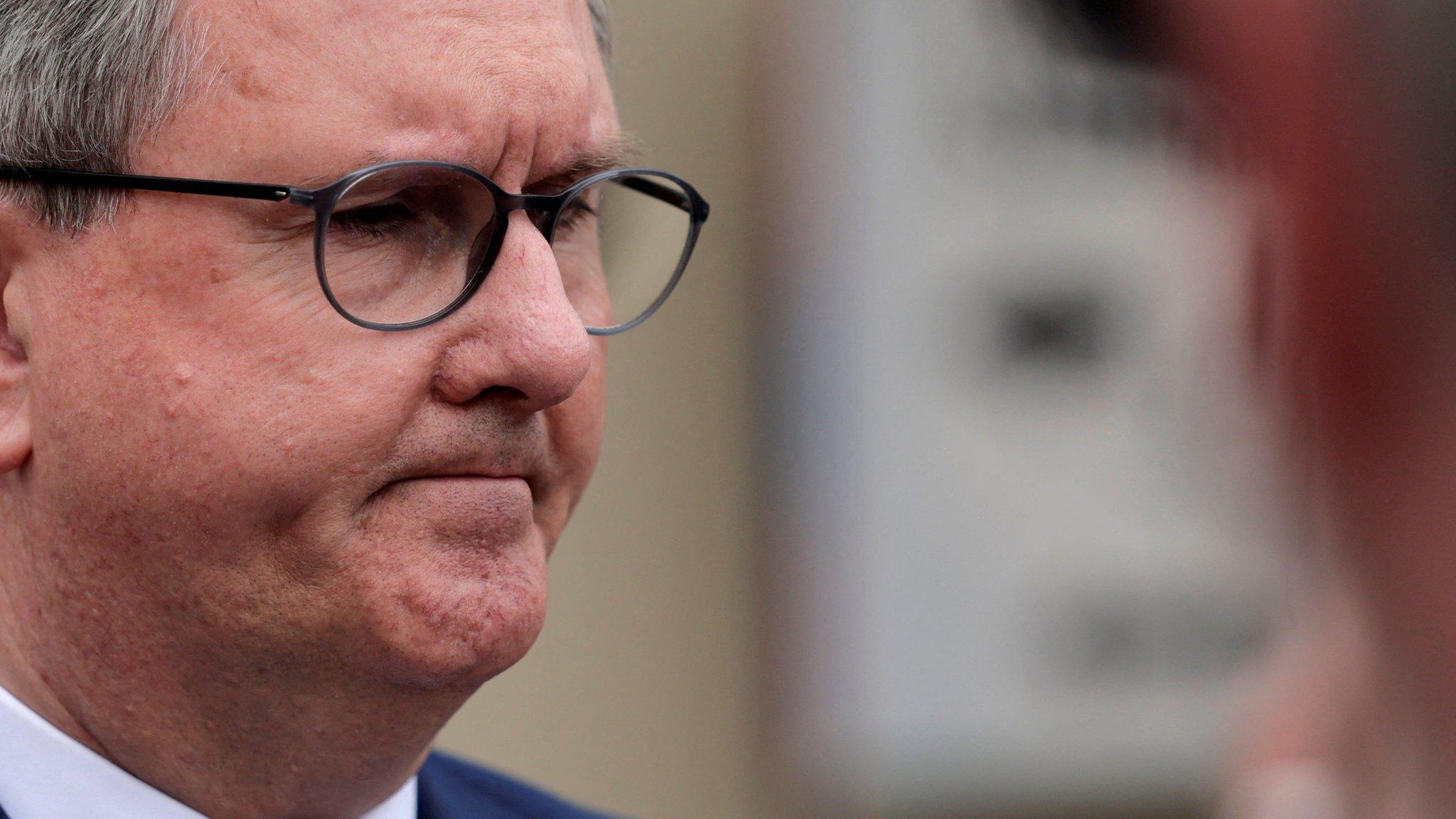
- Published25 July 2023
